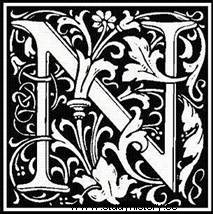 Nathan is one of the many fashionable biblical first names in nurseries for the past twenty years. Nathan was a prophet at the court of David in the 10th century BC, this first name meaning "God gave". Common in North America for a long time, it is spreading more recently in Europe. Feast on March 7.
Nathan is one of the many fashionable biblical first names in nurseries for the past twenty years. Nathan was a prophet at the court of David in the 10th century BC, this first name meaning "God gave". Common in North America for a long time, it is spreading more recently in Europe. Feast on March 7.
Origin and etymology of the name Nathan
The first name Nathan comes from the Latin and Greek form of a name of Hebrew origin, Natan, "he [God] gave" and is sometimes considered, wrongly, as a diminutive of Nathanael.
 In the Old Testament, the prophet Nathan intervenes when King David wants to build a temple. Nathan objects, claiming that it is God who will give David a home. The prophet's words play on the ambiguity of the meaning of house:it is a “dwelling” in David's project, but a “lineage” in Nathan's speech. In another context, Nathan represents the moral law; he castigates the behavior of King David, who kidnapped Bathsheba and had her husband killed.
In the Old Testament, the prophet Nathan intervenes when King David wants to build a temple. Nathan objects, claiming that it is God who will give David a home. The prophet's words play on the ambiguity of the meaning of house:it is a “dwelling” in David's project, but a “lineage” in Nathan's speech. In another context, Nathan represents the moral law; he castigates the behavior of King David, who kidnapped Bathsheba and had her husband killed.
Usage and popularity of the first name Nathan
Nathan has been a popular given name in England and its colonies since the 18th century, particularly in the United States. Common since the 1960s, it became very common after 1980. Nathan, extremely rare in France before the second half of the 20th century, has really been adopted since 1990, quickly ranking among the most popular male names. Few famous Nathans, we can nevertheless mention the Russian violinist Nathan Milstein and the American writer Nathan Weistein, as well as the fictional characters Nathan Petrelli (Heroes) and Nathan Hale (Resistance).
To go further
- 2000 first names and their history, by Omer Englebert. Albin Michel, 2015.
- The Book of My Name - Nathan. First, 2017.
